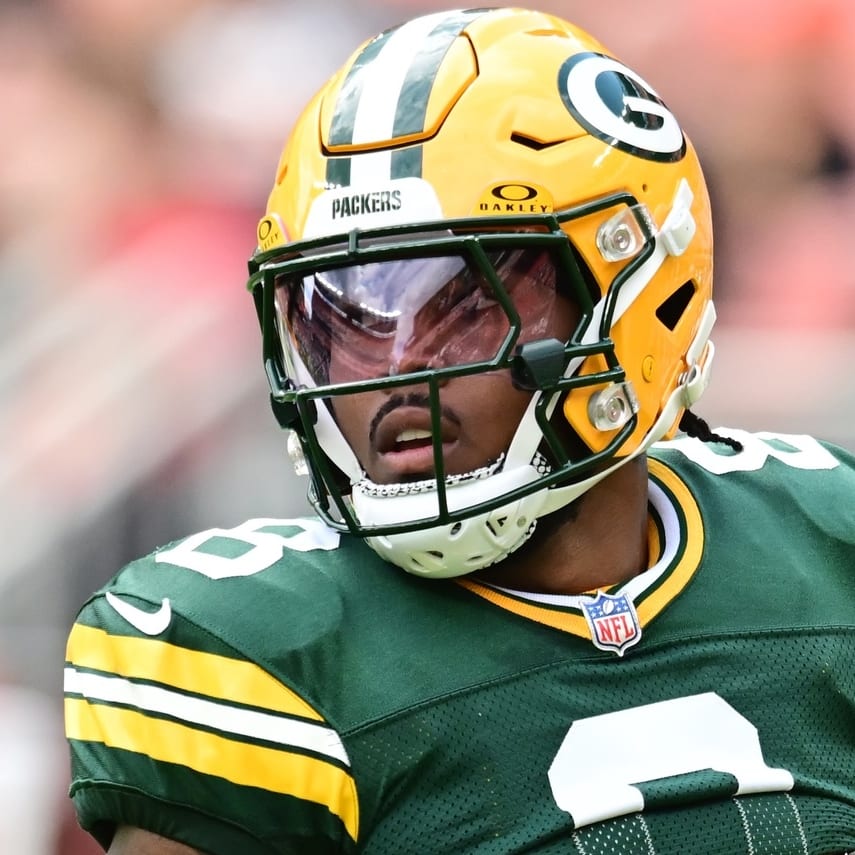It's Mardi Gras in New Orleans. King cakes will be consumed, costumes will be worn, and floats will roll.
Instead of catching beads last weekend, however, New Orleans Saints' All-Pro "tight end" Jimmy Graham got tossed something he probably didn't want.
On Friday, while the Crescent City was preoccupied with parades and Mardi Gras debauchery, the Saints put a temporary halt to the revelry, predictably slapping the Franchise Tag on Graham. The Tag is a valuable competitive tool in the salary cap age, as it allows a team to retain a player set to become a free agent without him truly hitting the open market. The cost, however, is steep. For the coming year, the team must pay the tagged player the average of the top five salaries at the player's position.
In a bit of a surprise, the Saints opted to use the Non-Exclusive Franchise Tag, as opposed to the Exclusive Tag, on Graham, meaning that other NFL teams can sign Graham, but only if they're willing to give up two first round picks. The Saints, however, would still have the opportunity to match any such offer in order to retain Graham.
A player's position is the key to determining his salary due under the Franchise Tag. In the ever-evolving NFL, however, what appeared to be a fairly simple determination has become a hotbed of controversy. Article 10 of the NFL's Collective Bargaining Agreement with the Players' Association governs the Franchise Tag. Accordingly, a player's position is
It's Mardi Gras in New Orleans. King cakes will be consumed, costumes will be worn, and floats will roll.
Instead of catching beads last weekend, however, New Orleans Saints' All-Pro "tight end" Jimmy Graham got tossed something he probably didn't want.
On Friday, while the Crescent City was preoccupied with parades and Mardi Gras debauchery, the Saints put a temporary halt to the revelry, predictably slapping the Franchise Tag on Graham. The Tag is a valuable competitive tool in the salary cap age, as it allows a team to retain a player set to become a free agent without him truly hitting the open market. The cost, however, is steep. For the coming year, the team must pay the tagged player the average of the top five salaries at the player's position.
In a bit of a surprise, the Saints opted to use the Non-Exclusive Franchise Tag, as opposed to the Exclusive Tag, on Graham, meaning that other NFL teams can sign Graham, but only if they're willing to give up two first round picks. The Saints, however, would still have the opportunity to match any such offer in order to retain Graham.
A player's position is the key to determining his salary due under the Franchise Tag. In the ever-evolving NFL, however, what appeared to be a fairly simple determination has become a hotbed of controversy. Article 10 of the NFL's Collective Bargaining Agreement with the Players' Association governs the Franchise Tag. Accordingly, a player's position is defined as the position "at which he participated in the most plays during the prior League Year." Thus, a player's positional distinction is critical. For a tight end, the projected Franchise Tag salary will be $7.04 million for the coming season. Meanwhile, a player tagged as a wide receiver is projected to earn a whopping $12.3 million.
In a league where the average player's career is between three and six years (depending on who you believe – the players or the NFL), it's hard to fault a player looking to cash in big. Article 10, Section 7(c) of the CBA provides that "any dispute concerning the identity and Salary of players included within each player position category...shall be submitted to and resolved by the Impartial Arbitrator..." As such, Graham is expected to file a grievance against the Saints challenging his designation as a tight end under the Tag, a move that could have huge repercussions in fantasy leagues.
Per ESPN Stats & Information, Graham lined up as a WR on 67 percent of his snaps in 2013 (45 percent in the slot, 22 percent out wide) while lining up as an "in-line" TE on the remaining 33 percent of his snaps. You can bet that Graham's agent and attorneys are likely to bring this little nugget to light in any arbitration proceedings, as well as the fact that he has 301 receptions for 3,863 yards and 41 touchdowns over his four-year career – including a league-high 16 touchdown catches last season.
Still, the Saints, who are already facing strict salary cap restraints, are expected to rebut with a variety of arguments casting Graham's black-and-white positional arguments into endless shades of gray, given the versatility of NFL offenses in today's pass-happy game. As my good friend Bryan Etter of The Sports Esquires put it, "whereas your father's TE was used as a proxy for an extra offensive lineman and occasionally went out for a 6-yard curl, your present-day TE can be found lining up all over the field, threatening the defense in a down-field manner more frequently and effectively than ever."
Besides the approximately $5 million hanging in the balance, Graham's challenge could have huge implications in fantasy. Should an arbitrator rule that Graham is actually a wide receiver, as opposed to a tight end, it would have a ripple effect on Graham's relative fantasy value. Although Graham posted otherworldly stats in 2013, a significant portion of his value was driven by positional scarcity. His 218 fantasy points (standard scoring) easily led all tight ends, and he scored more than 50 points more than the second-highest scoring tight end (Vernon Davis – 161 points).
Had Graham been listed as a wide receiver last year, his point total would still be enormously impressive, but would only rank him fourth among wide receivers, behind Josh Gordon (227 points), Demaryious Thomas (227 points) and Calvin Johnson (219 points), with a host of others nipping at his heels.
While Graham is unquestionably an elite talent, it's similarly no question that he's of much greater value to fantasy owners if he's eligible in starting lineups as a tight end, a position that is perilously thin. If you missed out on Graham last year, there was a very good chance you were stuck choosing from an uninspiring set of options, with only 10 tight ends (Graham included) scoring at least 100 fantasy points.
Meanwhile, nearly that many wide receivers (seven of them) scored at least 200 points(!) in 2013. If Graham is listed as a receiver next season, he loses the uniqueness that made him such a coveted target in fantasy drafts.
It's certainly possible – and probably the most likely scenario – that Graham and the Saints reach an agreement prior to any proceedings in front of an arbitrator. If so, the status quo would likely remain, leaving Graham atop the fantasy ranks at his current tight end position. Yet, as Bob Dylan once crooned, "The Times They Are A-Changin'", and the smart fantasy owners are the ones staying ahead of the game.










